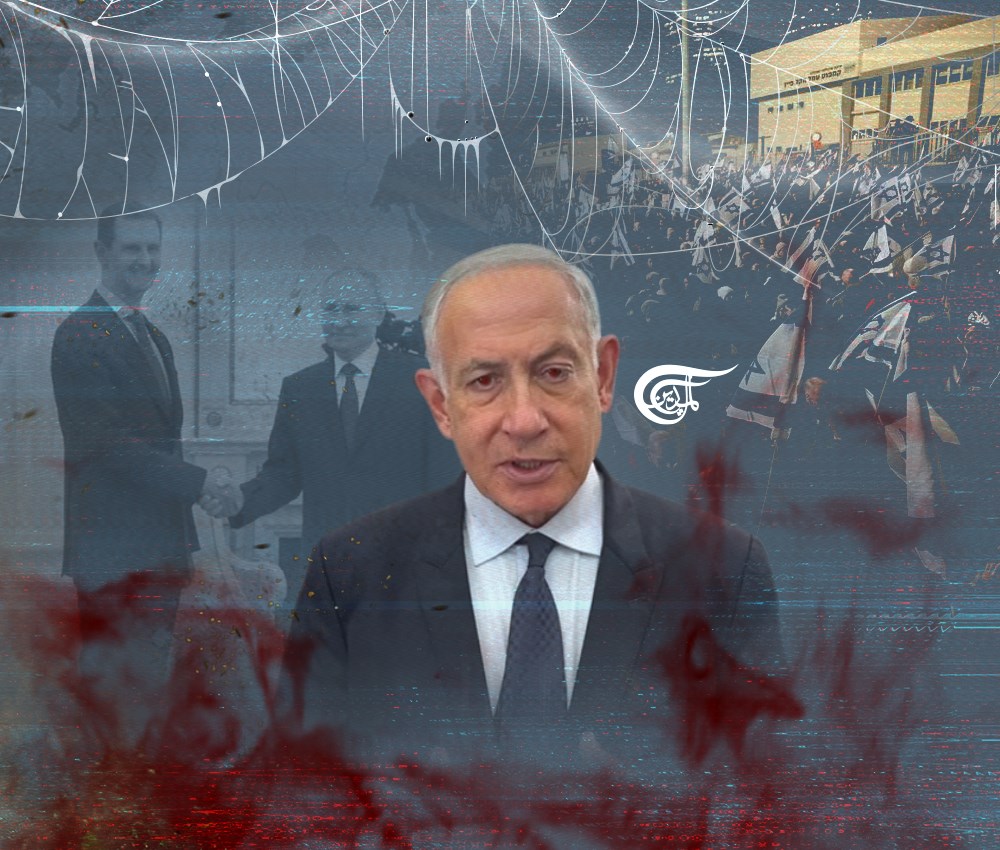Multipolarity, Palestine, and the multiple crises of the Zionist entity
The Zionist entity is facing a dual crisis, internally and externally, placing it on the brink of collapse.
According to Axios, in January 2023, the United States sent 300,000 of 155mm artillery rounds from their stockpile in "Israel" to Ukraine. After a year of refusal from the Zionist government to send any material to Ukraine, it seems that "Israel" “approved export licenses for two Israeli companies to sell electronic warfare systems with a range of some 40 kilometers (25 miles) that could be used to defend against drone attacks." While there are already various confirmations of Zionist mercenaries fighting in Ukraine, Moscow has said that there will be retaliatory measures taken against "Tel Aviv" if actual military hardware was sent on behalf of the colonial government. All the while, the Zionist entity is collapsing from within as the controversial judicial reforms seem to be on their way to becoming law. These recent moves do not seem like the calculated strategies of a powerful entity and accomplice of imperialism, but rather, in the words of Sayyed Hassan Nasrallah these are the futile attempts for the survival of an entity that is “weaker than a spider’s web." On the other side of Palestine, the political bureau of Hamas confirmed last week that they visited Moscow ‘recently’ and without the Zionist entity knowing a thing. So, what does this mean regionally and geopolitically?
The Zionist entity is facing a dual crisis. Internally, the proposed judicial reform has caused massive protests against the new government (1). As such, many settlers are returning to their ancestral homes in Europe and elsewhere. As stated in the Palestine Chronicle:
Israelis applying for French citizenship increased by 13%; Portuguese authorities recorded a 68% increase in citizenship applications from Israelis, and the Polish and German authorities recorded a 10% increase in the same applications over the past two months.
Also mentioned in the report: “up to 2020, more than 756,000 Jews left Israel to live in other countries." The reasons mentioned are economic instability, shaky prospects for peace, and the increase in quantity and quality of Palestinian Resistance operations.
Along with settlers, the Zionist garrison has witnessed capital flight at an accelerated rate. It is believed that at least $4 billion have been moved from Israeli banks to American and European banks. According to a recent report in The Times of "Israel", several unnamed banking sources cited by YnetNews said the majority of the outflowing capital was transferred to Europe and the United States and moved mostly by individuals rather than institutions. It said that in the past two weeks “about 50 companies,” mostly from the high-tech sector, had also moved money abroad.
The other side of the crisis is external. As mentioned above, the decision to send "defensive" military tech to the Kiev regime will speed up the disintegration of relations between Moscow and "Tel-Aviv". This could have far-reaching implications due to the close relations enjoyed by the Russian Federation and the Syrian Arab Republic, which were strengthened even more during President Bashar Al-Assad’s recent state visit to Moscow. On the northern borders of Palestine, Sayyed Hassan Nasrallah is optimistic about this internal strife among the colonizers, as he said, “The Israeli public has lost faith in its military, leadership and justice system…the greatest threat we face in the region will disappear before it reaches its 80th year.” With sections of the military positioning themselves against the government’s decisions and reforms, there is chaos inside the colony, and if this is just the beginning, "it’ll do until the [chaos] gets here." Strategically speaking, the time to scale up operations against the colony is here, or indeed it is approaching fast. The recent Saudi-Iranian rapprochement has caused the UAE to pull out of a high-stakes arms deal with the Zionist garrison "state". While this does not absolve the sclerotic monarchy in Abu Dhabi, it does materially affect the Zionists’ bottom line, along with the capital flight and mass migration of settlers back to Europe.
Yet, the will and material capabilities of the Palestinians constitute the ultimate deciding factor in removing the Zionist stain from the region. In the evergreen words of Anouar Abdel-Malek:
…the decisive factor – the national will of the masses – can operate as a decisive factor in the world power struggle between imperialism and national movements only when it plays its role as an integrated component part of a global strategy, making full use of the positive and negative aspects, the supporting and limitative aspects of geopolitics.
The Resistance factions have claimed they are "running out of patience," and the recent meeting of high-ranking Hamas officials with high-ranking Russian officials certainly sends a strong message to the occupiers. Geostrategically, the removal of the Zionists from West Asia means stronger regional integration, an end to the imperialist plundering of oil and other precious resources, and the potential for national-popular development in a region where development has been denied except in strategic sectors. “Lumpen development afflicts the whole region…the occupation in Palestine is a quasi-occupation of the region, which also proletarianizes on a regional scale” (2). As Ali Kadri points out in his 2020 book A Theory of Forced Labor Migration, the Palestinian economy has been systematically de-developed while the Israeli economy is kept afloat by the security and high-tech industries, industries useful for imperialist designs in the region.
The increase in bilateral relations between Moscow and Teheran and Moscow and Damascus can help rebuild a regional economy decimated by imperialism, while Beijing’s One Belt One Road is growing in North and East Africa and the Gulf. As I stated in my previous article about the strength of the Resistance factions in Palestine, their capabilities have grown. The time to strike is approaching, and meanwhile, we must remember the words of our hero and martyr Ghassan Kanafani: “Imperialism has laid its body over the world, the head in Eastern Asia, the heart in the Middle East, its arteries reaching Africa and Latin America. Wherever you strike it, you damage it, and you serve the world revolution."
References:
1- In the case of a settler colony, ‘left’ and ‘right’ or ‘far-right’ are meaningless distinctions which serve to obfuscate the facts of colonialism.
2- Kadri, Ali. 2020. A Theory of Forced Labour Migration: The Proletarianisation of the West Bank Under Occupation (1967-1992). Springer Press. Singapore.

 Hanna Eid
Hanna Eid
 6 Min Read
6 Min Read












